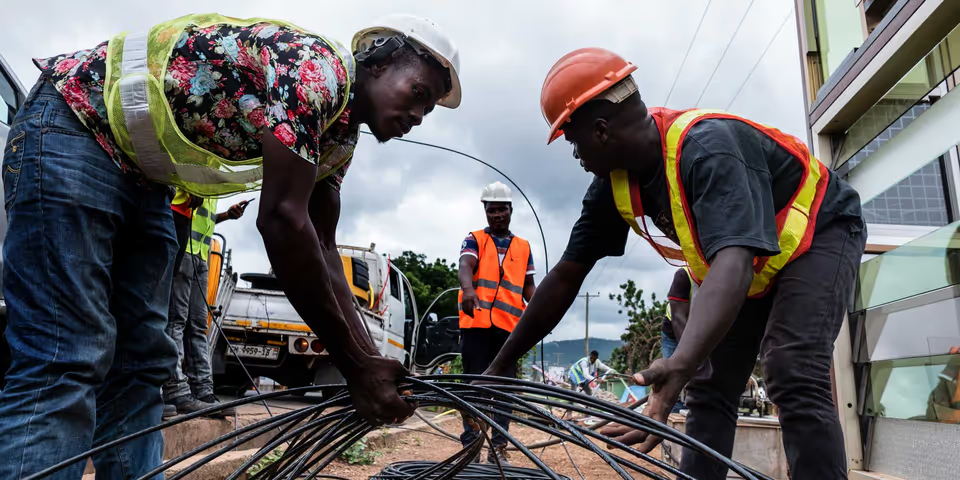The Federal Executive Council of Nigeria has launched key initiatives set to improve the country’s digital startup ecosystem, Bosun Tijani, the minister for communication, innovation and digital economy disclosed on Tuesday.
One of the initiatives centres on the launch of a unique entity – a Special Purpose Vehicle (SPV). This SPV will be tasked with overseeing the deployment of 90,000 kilometres of additional fibre optic cabling. This infrastructure investment aims to strengthen Nigeria’s national internet backbone, ultimately paving the way for nationwide internet access.
In March, Tijani announced a collaboration between the Nigerian government and the World Bank to secure $3 billion in funding for expanding the country’s fibre optic network. However, he did not clearly state how the project would be funded.
With the addition of these new cables, Nigeria’s total fibre optic coverage is projected to jump from its current 35,000 kilometres to a minimum of 125,000 kilometres. This substantial expansion will position Nigeria as Africa’s third-largest holder of terrestrial fibre optic backbone, following Egypt and South Africa.
This extensive network promises to unlock the full potential of Nigeria’s existing eight submarine cables. With only 10% of their data capacity currently being used, this expansion is expected to significantly increase data utilisation across the country.
Related Article: How Nigeria’s $428 million ICT backbone project is enabling rural financial inclusion
Building on its existing partnership with the Broadband Alliance, this enhanced connectivity will bridge the digital divide. According to Tijani, over 200,000 educational institutions, healthcare facilities and social organisations are set to be connected, ensuring a wider segment of Nigerian society benefits from internet access.
The anticipated benefits are significant. Internet penetration nationwide could surge past 70%, with access costs potentially dropping by more than 60%. At least half of the currently unconnected 33 million Nigerians could be included, and Nigeria’s GDP is projected to grow by up to 1.5% per capita, raising it from $472.6 billion (2022) to $502 billion within the next four years.
However, some analysts point to Right of Way (RoW) charges as a major obstacle to wider broadband penetration in Nigeria. These are fees that telecom companies and ISPs pay to government agencies for permission to lay fibre optic cables.
While some states, like Nassarawa and Kastina, have recognised this barrier and waived these charges entirely, others continue to impose significant costs. These fees, which can reach as high as ₦9,000 per linear meter in some states, discourage companies from expanding their networks, particularly into rural areas. This creates a significant affordability issue and hinders efforts to connect more Nigerians to broadband.
The high cost of RoW is a key reason why many Nigerians, particularly those outside of major cities, lack access to essential broadband services.
Get passive updates on African tech & startups
View and choose the stories to interact with on our WhatsApp Channel
Explore




